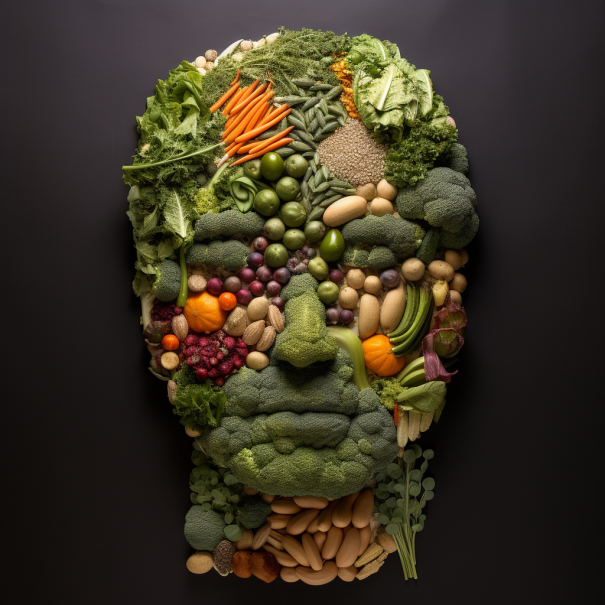Cooking Tips for Effective Weight Loss on a Plant-Based Diet
Losing weight can be a challenging endeavor, but a plant-based diet has shown promising results in supporting weight loss goals. To maximize the benefits of a plant-based diet for weight management, it’s essential to learn cooking tips that enhance flavor, promote satiety, and ensure efficient meal preparation. In this article, we will explore six key cooking tips specifically tailored to a plant-based approach for successful weight loss.
Mastering Flavorful Plant-Based Cooking for Weight Loss
When embarking on a weight loss journey, it’s crucial to enjoy the food you eat. Mastering flavorful plant-based cooking can help make your meals satisfying and enjoyable without compromising your weight loss goals. By experimenting with seasoning and spice combinations, incorporating cooking techniques that enhance flavors, and making creative ingredient swaps, you can create mouthwatering plant-based dishes that keep you motivated and on track.
Satiating and Filling Plant-Based Meals for Weight Loss
Feeling satiated and full after meals is key to maintaining a plant-based diet for weight loss. By including high-fiber ingredients, such as whole grains, legumes, and vegetables, in your meals, you can increase satiety and reduce the likelihood of overeating. Additionally, incorporating protein-rich plant foods like tofu, tempeh, and lentils can further promote a feeling of fullness. Healthy fats, such as avocados, nuts, and seeds, can also contribute to satiety while providing essential nutrients.
Efficient Meal Prepping for Plant-Based Weight Loss Success
Meal prepping is a powerful tool for staying on track with a plant-based diet for weight loss. By investing some time in advance, you can save time and make healthier choices throughout the week. Batch cooking, planning balanced meals, and utilizing versatile plant-based ingredients are effective strategies for efficient meal prepping. Proper storage and reheating techniques ensure that your prepped meals remain convenient and maintain their quality.
Smart Portion Control: Plant-Based Cooking Tips for Weight Loss
Portion control is crucial for managing calorie intake on a plant-based diet. By understanding visual cues and portion size guidelines for different food groups, you can create balanced and portioned plant-based meals. Incorporating smaller plates, bowls, or measuring tools can assist in maintaining appropriate serving sizes. Being mindful of portion control is a helpful habit that supports your weight loss journey.
Healthy Cooking Techniques for Plant-Based Weight Loss
Adopting healthy cooking techniques can significantly impact your weight loss progress. Techniques like steaming, sautéing with minimal oil, roasting with parchment paper, and using non-stick cookware can reduce the need for excessive oils and fats in your plant-based cooking. Enhancing flavors with herbs, spices, and citrus can provide a delightful taste experience without adding unnecessary calories. By implementing these techniques, you can create delicious and nutritious plant-based meals that aid in weight loss.
Creative Plant-Based Swaps for Lighter, Healthier Cooking
Making creative ingredient swaps is an effective way to reduce calories and boost nutrition in plant-based cooking. Swapping high-calorie ingredients for healthier alternatives, such as using cauliflower rice instead of white rice or using nut milk instead of dairy milk, can contribute to weight loss efforts. Reducing added sugars and oils in cooking also plays a significant role in maintaining a healthier and lighter approach to plant-based meals. With these creative plant-based swaps, you can enjoy flavorful dishes while supporting your weight loss goals.
Conclusion
Incorporating cooking tips into your plant-based weight loss journey can make a significant difference in achieving your goals. Mastering flavorful cooking, creating satiating meals, efficiently meal prepping, practicing smart portion control, adopting healthy cooking techniques, and making creative ingredient swaps are key strategies for successful weight loss on a plant-based diet. Remember, a balanced and sustainable approach to weight loss involves more than just cooking. Regular physical activity, overall lifestyle habits, and consulting with a healthcare professional or registered dietitian are essential for long-term success. Embrace these cooking tips, enjoy your plant-based meals, and embrace a healthier you.
Related FAQ
Can I lose weight on a plant-based diet?
Yes, you can certainly lose weight on a plant-based diet. Plant-based diets are often rich in fiber, low in saturated fats, and abundant in nutrient-dense foods, making them conducive to weight loss. By focusing on whole plant foods, portion control, and incorporating satiating ingredients, you can effectively manage your weight while following a plant-based eating pattern.
How can I make plant-based meals more flavorful?
To make plant-based meals flavorful, experiment with different herbs, spices, and seasoning combinations. Get creative with flavor profiles from various cuisines. Additionally, using ingredients like nutritional yeast, tamari or soy sauce, miso paste, and vinegars can add depth and complexity to your dishes. Don’t shy away from trying new cooking techniques or exploring plant-based recipe resources for inspiration.
How can I ensure I feel full and satisfied on a plant-based diet?
To feel full and satisfied on a plant-based diet, focus on incorporating high-fiber foods such as whole grains, legumes, and vegetables into your meals. These foods promote satiety and provide essential nutrients. Additionally, include protein-rich plant foods like tofu, tempeh, lentils, and incorporate healthy fats from sources like avocados, nuts, and seeds. Balanced meals with a combination of these components will help you feel satisfied and prevent excessive snacking.
What are some efficient meal prepping strategies for a plant-based diet?
Efficient meal prepping for a plant-based diet involves batch cooking large portions of grains, legumes, and roasted or steamed vegetables that can be used as the base for multiple meals throughout the week. Plan your meals in advance, ensuring a good balance of macronutrients (carbohydrates, proteins, and fats) and incorporate versatile ingredients that can be repurposed in different dishes. Use meal prep containers to portion out your meals for easy grab-and-go options.
Are there any healthy alternatives to common high-calorie ingredients in plant-based cooking?
Yes, there are several healthy alternatives to high-calorie ingredients in plant-based cooking. For example, you can swap white rice for cauliflower rice, regular pasta for whole wheat or legume-based pasta, and dairy milk for plant-based alternatives like almond milk or oat milk. Instead of using oil for sautéing, you can use vegetable broth or water. Experiment with these ingredient swaps to reduce calories and improve the nutritional profile of your meals.
Key Take Away
- Prioritize flavor: Mastering flavorful plant-based cooking is essential for enjoying your meals while losing weight. Experiment with seasoning, spices, and ingredient swaps to create mouthwatering dishes that keep you motivated and on track.
- Increase satiety with high-fiber foods: Include fiber-rich ingredients like whole grains, legumes, and vegetables in your plant-based meals to promote a feeling of fullness and reduce overeating. Protein-rich plant foods and healthy fats, such as tofu, tempeh, lentils, avocados, nuts, and seeds, can also contribute to satiety.
- Embrace efficient meal prepping: Invest time in advance to meal prep for the week, saving time and making healthier choices. Batch cooking, planning balanced meals, and utilizing versatile plant-based ingredients are effective strategies. Ensure proper storage and reheating techniques to maintain convenience and meal quality.
- Practice smart portion control: Understand portion sizes and use visual cues to create balanced and portioned plant-based meals. Utilize smaller plates, bowls, or measuring tools to help maintain appropriate serving sizes and support your weight loss goals.
- Adopt healthy cooking techniques and ingredient swaps: Opt for cooking methods like steaming, sautéing with minimal oil, roasting with parchment paper, and non-stick cookware to reduce excessive oils and fats. Enhance flavors with herbs, spices, and citrus without adding unnecessary calories. Make creative swaps like using cauliflower rice instead of white rice or nut milk instead of dairy milk to reduce calories and improve nutrition.
- Remember, these cooking tips are most effective when combined with regular physical activity, overall lifestyle habits, and guidance from healthcare professionals or registered dietitians for long-term weight loss success. Enjoy your plant-based meals and embrace a healthier you.
Glossary
- Plant-based diet: A diet that primarily consists of foods derived from plants, such as fruits, vegetables, whole grains, legumes, nuts, and seeds. It typically excludes or minimizes the consumption of animal products like meat, dairy, and eggs.
- Satiety: The feeling of fullness and satisfaction after eating a meal. Satiating foods help to curb hunger and reduce the likelihood of overeating.
- Meal prepping: The practice of planning and preparing meals in advance, usually for several days or the entire week. It involves cooking and portioning meals ahead of time, which can save time, promote healthier choices, and support weight loss goals.
- Portion control: The act of managing the quantity of food consumed in a meal or snack. It involves being mindful of serving sizes and controlling the amount of food eaten to maintain a balanced calorie intake.
- Ingredient swaps: The act of substituting one ingredient with another in a recipe to achieve a desired outcome, such as reducing calories or improving nutritional value. In the context of plant-based cooking for weight loss, ingredient swaps involve replacing high-calorie or less nutritious ingredients with healthier alternatives to support weight loss efforts.
Additional Resources
Effects of a Plant-Based Diet on Weight Loss and Maintenance study
The Effects of a Plant-Based Diet on Weight Loss and Maintenance (2019) by Barnard et al. This study found that a plant-based diet was more effective for weight loss and maintenance than a control diet.
https://www.ncbi.nlm.nih.gov/pmc/articles/PMC7533223/
Review of the Evidence for the Effects of Plant-Based Diets on Weight Loss study
A Review of the Evidence for the Effects of Plant-Based Diets on Weight Loss (2017) by Craig and Mangels. This review article summarizes the evidence on the effects of plant-based diets for weight loss.


